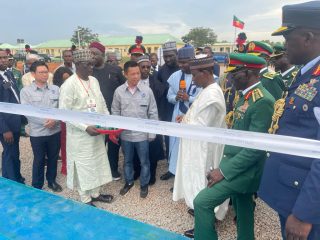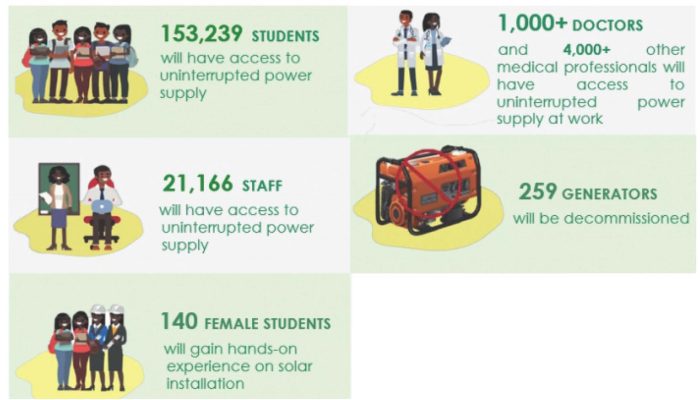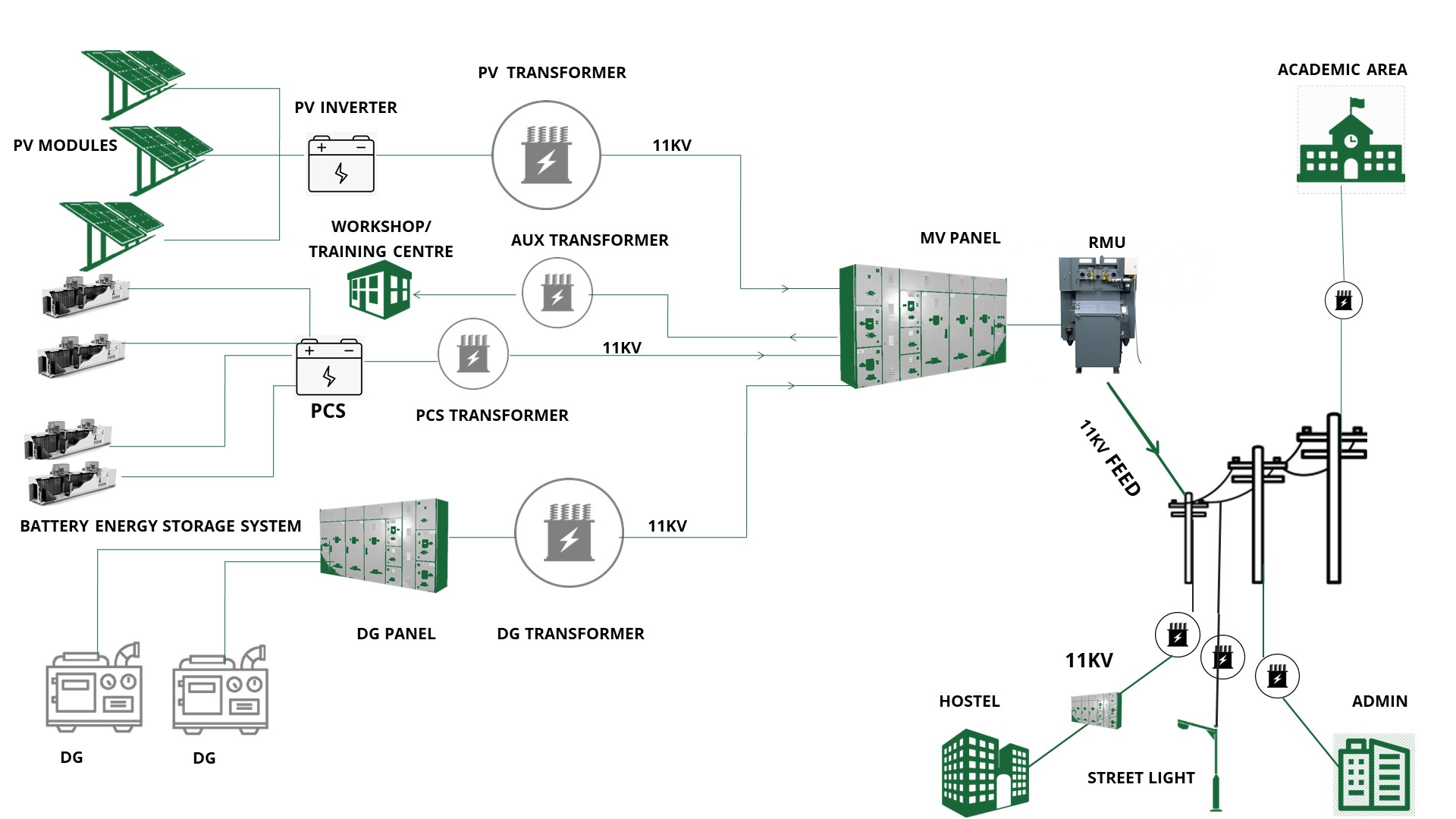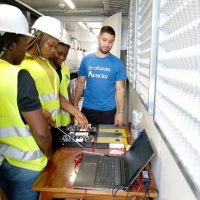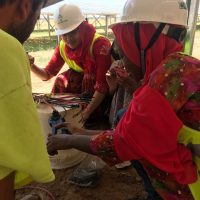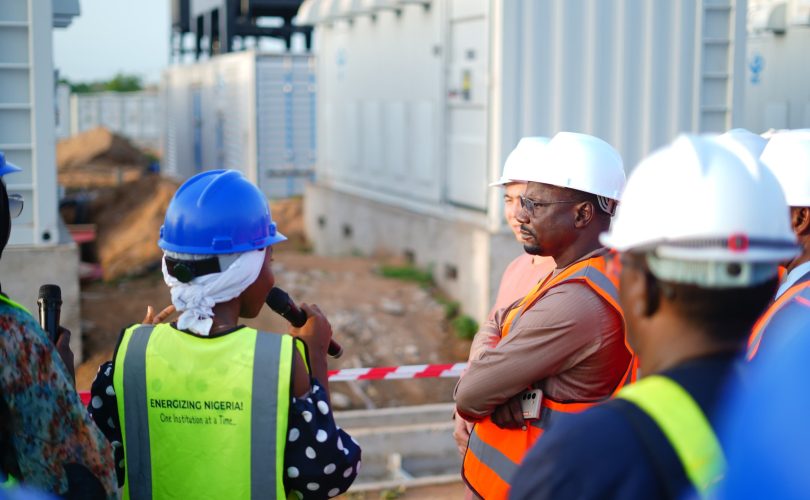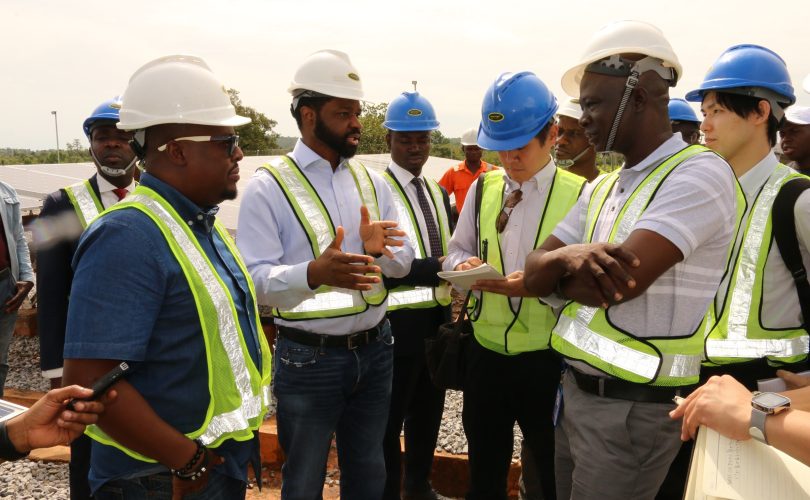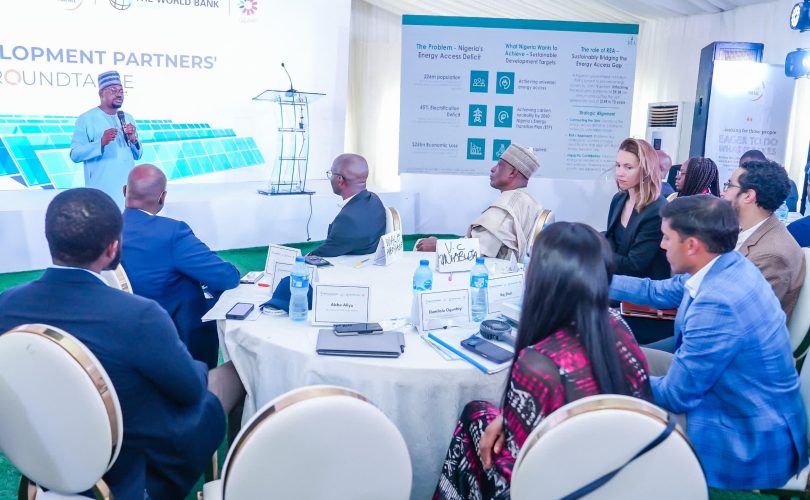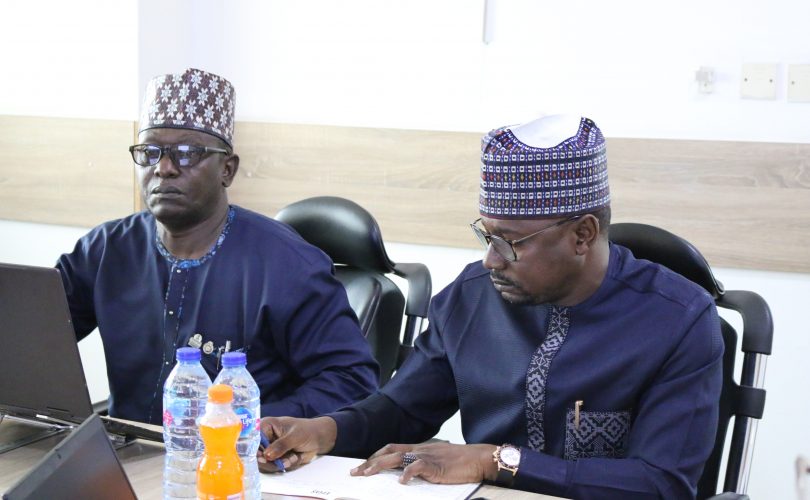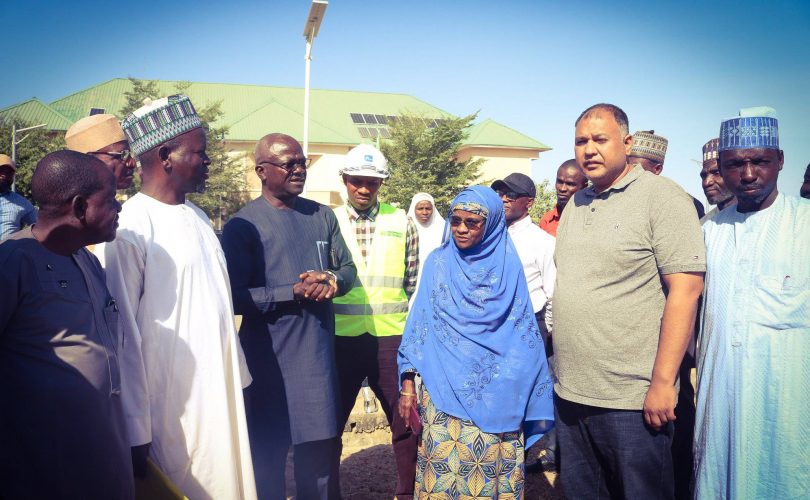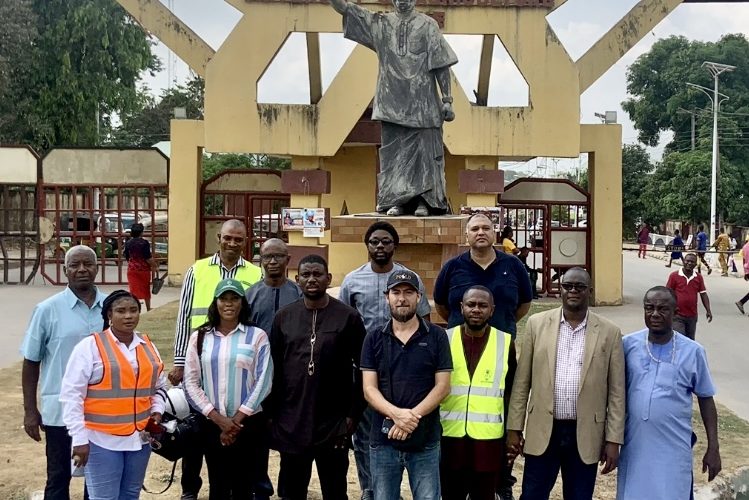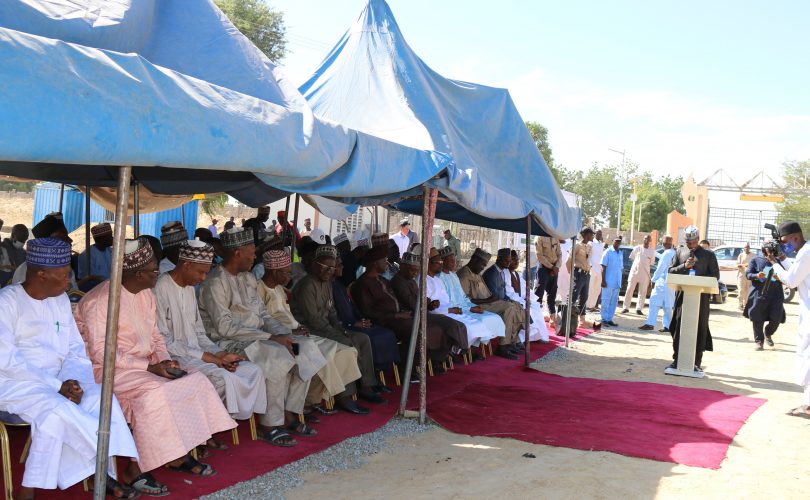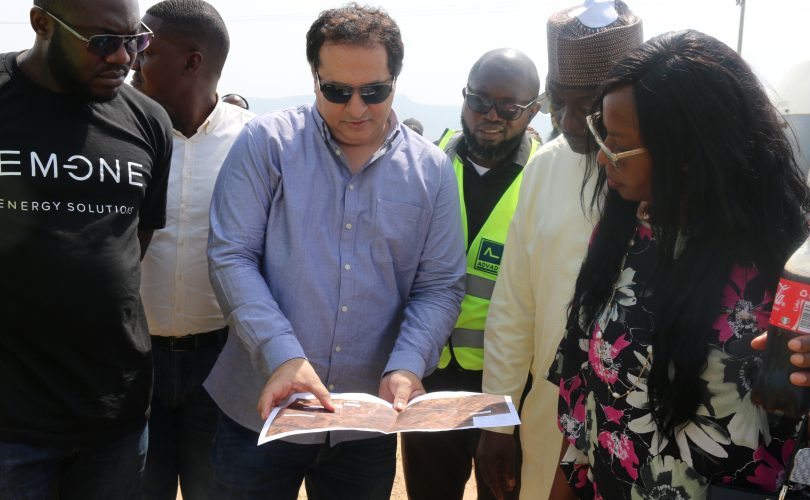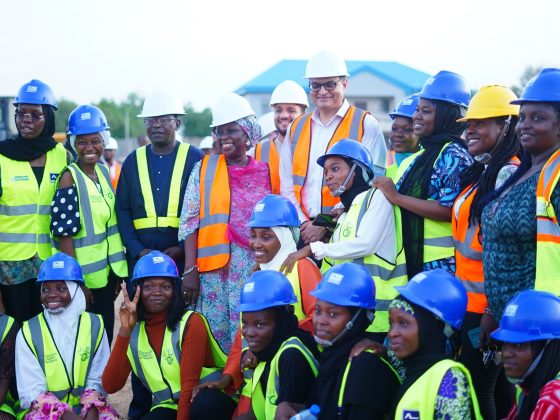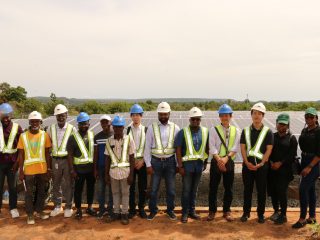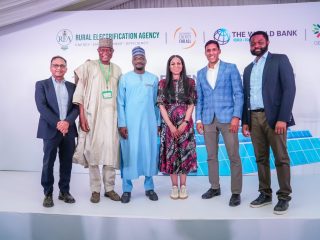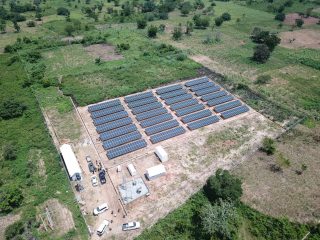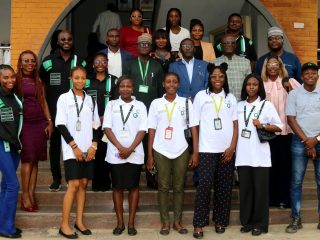Access to constant power supply in educational institutions and healthcare facilities in Nigeria has been identified as a major challenge as well as a barrier to effective learning, institutional operations, student residency and access to quality healthcare.
Considering the role of arguably the most important sectors in driving socio-economic development in Nigeria (i.e. Education and Health), the Federal Ministry of Power through the Rural Electrification Agency (REA), resolved to embark on viable projects to ensure the availability of reliable, sustainable and affordable power to Federal Universities and University Teaching Hospitals across the country.
In view of the foregoing, the ‘Energizing Education Programme’ (EEP), an Initiative of the Federal Government of Nigeria (FGN), was approved by His Excellency, President Muhammadu Buhari, in 2016, with an aim to provide reliable, affordable and sustainable power to thirty-seven (37) Federal Universities and seven (7) Teaching Hospitals within Nigeria.
The EEP Phase II will see to the implementation of this initiative in seven (7) Federal Universities and two (2) University Teaching Hospitals, across all 6 geopolitical zones. The EEP Phase II beneficiary institutions are as follows:
| S/N | Location | State | Region |
|
1. |
Federal University of Agriculture, Abeokuta | Ogun | South-West |
|
2. |
Michael Okpara University of Agriculture, Umudike | Abia | South- East |
|
3. |
University of Calabar & Teaching Hospital | Cross River | South- South |
|
4. |
University of Maiduguri & Teaching Hospital | Borno | North-East |
|
5. |
University of Abuja | F.C.T | North Central |
|
6. |
Federal University Gashua | Yobe | North-East |
|
7. |
Nigerian Defence Academy | Kaduna | North-West |
Funding breakdown of the EEP Phase II
The FGN through the support of the World Bank, has earmarked $105 million for the implementation of the programme. This is to cover; the Engineering, Procurement & Construction (EPC) of the power plants, provision of streetlights to improve security within the universities, rehabilitation of existing distribution infrastructure within the universities, one-year operations and maintenance of the power plant, and the construction of a world-class workshop & training centers
Sub components of the EEP Phase II
In addition to the provision of a reliable source of power to the beneficiary institutions, The EEP includes the following sub-components:
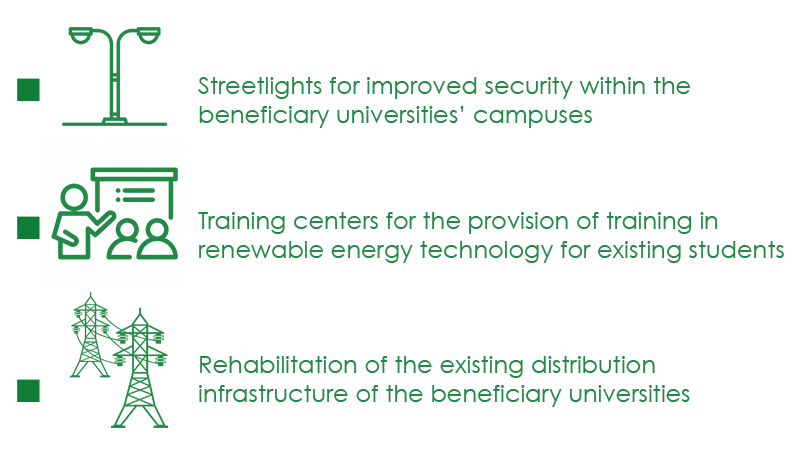
The EEP Phase II will also provide a platform where twenty (20) female Science, Technology, Engineering and Mathematics (STEM) students from each of the seven (7) beneficiary institutions will gain hands-on practical training and experience in the design and construction of power systems, throughout the construction phase of the projects.
Application Procedure
In order to ensure sustainability and achieve best practices within the EEP Phase II, a Competitive Bidding Process will be adopted for the engagement of experienced Engineering Procurement and Construction Contractors towards the execution of the projects.
EEP STEM Internship Programme
As part of REA’s commitment to advancing gender inclusion and diversity in the power sector, the initiative of the Science, Technology, Engineering and Mathematics (STEM) Female Student Internship Programme was established under the EEP (EEP STEM Programme). The goal of this programme is to provide hands-on practical experience to twenty (20) female students from each of the beneficiary institutions, in the design and construction of power systems throughout the construction stage of the EEP projects, as well as to provide continued skill/ capacity building after the STEM Internship Programme.
Objectives
- To assist the selected students excel academically in their various courses, as well as encourage them to further advance their studies in STEM-related courses.
- To expose and give the students the confidence to take up STEM related careers with indigenous and foreign companies with proven knowledge expertise and experience.
- To equip the students with the skills required to thrive in the power sector.
Expected Outcome
- A total of 140 female students will be empowered.
- Increased understanding of STEM courses/ subjects taught at the universities.
- Increased advantage in the job market through capacity building and improving employability skills.
- Increased awareness on career and mentorship opportunities within the power sector
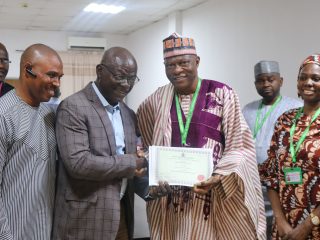
REA COMMENCES SITE HANDOVER TO EEP2 EPC
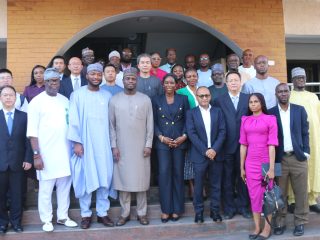
EPC AND O&M Contract Signing for EEP II
